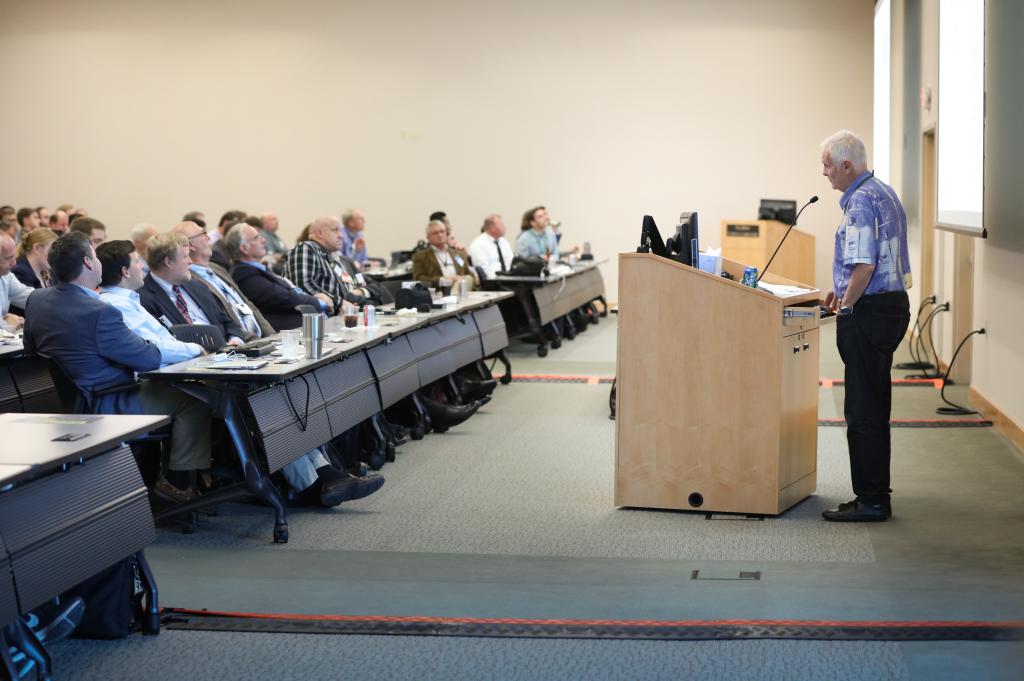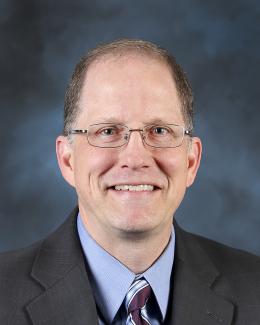
The US Department of Energy’s (DOE’s) Oak Ridge National Laboratory (ORNL) hosted the 2018 Molten Salt Reactor (MSR) Workshop—an annual event that brings together experts from industry, academia, DOE, and the Nuclear Regulatory Commission to discuss current efforts related to MSRs.
This year’s workshop took place October 3–4 as part of Nuclear Opportunities Week, which included various events around the Oak Ridge area. The East Tennessee Economic Council (ETEC) hosted the Nuclear Suppliers Workshop at ORNL to get the week started. During that 1-day event, ORNL Director Thomas Zacharia and ORNL Associate Laboratory Director for the Nuclear Science and Engineering Directorate Alan Icenhour addressed attendees.
To wrap up the week, ETEC offered a nuclear security program and DOE’s Office of Nuclear Energy (DOE-NE) sponsored a Millennial Nuclear Caucus at the Y-12 National Security Complex. The caucus offered college students and early-career scientists and engineers interested in careers in nuclear energy a chance to hear from Ed McGinnis, DOE-NE’s principal deputy assistant secretary, and Chuck Fleischmann, US Representative for Tennessee’s 3rd congressional district.
ORNL’s Lou Qualls, national technical director of MSRs and general chair of the MSR Workshop, played key roles in multiple events throughout the week—from organizing 2 full days of MSR-related talks for the MSR Workshop to serving on an advanced reactors panel during the Millennial Nuclear Caucus.
In a question-and-answer session, Qualls provided thoughts on how the fourth MSR Workshop remains a signature event for the nuclear community.
What was different about the 2018 version of the MSR Workshop compared with previous years?
Qualls: This year we discussed tangible progress being made toward reactor design and development and began to discuss the near-term time frames for reactor demonstrations. Established companies with sustained interest are now providing leadership in moving development forward. It is industry that will make this successful. We are here to help.
Does “momentum,” which has often been used to describe the nuclear community’s ever-growing interest in MSRs, continue to be the correct way to describe what’s taking place?
Qualls: Our community is now well formed and well informed. Conversations are increasingly founded on reliable information and data rather than interest and optimism alone. The interest continues to spread. We had 17 international participants attend this year and broader participation from universities and regulatory organizations.
In your role as the national technical director for MSRs, you spoke during the workshop about the inaugural MSR campaign within DOE’s Advanced Reactor Technologies Program. In this first year, has it been a success?
Qualls: The campaign has served as a place for common discussion and understanding regarding the path forward for MSRs. The highest-level objective of the campaign is to facilitate the development and near-term market deployment of MSRs in conjunction with industry partners, and I do believe that much progress has been made toward that objective. Two years ago, many were not supportive of molten salt reactor development and were specifically skeptical of liquid-fueled MSR development. Today, we have a community that routinely works on technology and policy issues directly related to just that. An important communication need has largely been met this year.
During the workshop, Syd Ball, who worked on the Molten Salt Reactor Experiment (1962–1973), spoke about his experiences and impressions during that time. How did that presentation come together?
Qualls: I have an equal interest in history and technology. History is where we were, and technology is where we are going. We have met and discussed the technology and the reactor, but I wanted to capture a sense of the experience from someone who was there in the 1960s. It must have been an exciting time for a young nuclear engineer working on brand new technology alongside the finest scientists of the day. I wanted to hear about the personal experience, so I asked Syd to tell us about who he is and how he got to Oak Ridge and how it felt to be part of that truly unique technical history.
What role does a gathering like this play in moving MSR development forward?
Qualls: It shows that there is broad and sustained interest in MSR development. It shows that there is still faith in the concept that nuclear energy has a vital role to play in our energy future. It also communicates a sense of seriousness and urgency to our government organizations that will encourage them to be supportive.
When bringing together a diverse collection of nuclear scientists and engineers from across the country, how do you ensure the presentations hit the mark for each attendee?
Qualls: I ask presenters to tell a simple story. Not too much technical detail but a narrative of their vision. I ask them to consider four questions. What are we doing? Why are we doing it? What are we worried about? What are we doing about that?
Because you’re a nuclear engineer, are there challenges you face in playing the role of a conference organizer that you don’t experience at other points during the year?
Qualls: It takes a lot of things working together. However, all of those things come with professionals who support the effort. Organizers of the conference just need to think about the stories to be told and get the right presenters lined up. The details of the workshop are managed by the talented (and patient) people who know the right questions to ask and just what to do.
Will there be a fifth MSR Workshop?
Qualls: Absolutely. However, given the level of interest this year, we are getting to the point where we need to find a bigger space and we probably need to add an additional day.
DOE-NE, through the Gateway for Accelerated Innovation in Nuclear, and the Nuclear Energy Institute sponsored portions of the 2018 MSR Workshop. ORNL is managed by UT-Battelle for DOE’s Office of Science. DOE’s Office of Science is the single largest supporter of basic research in the physical sciences in the United States and is working to address some of the most pressing challenges of our time. For more information, please visit https://www.energy.gov/science/https://www.energy.gov/science/.


